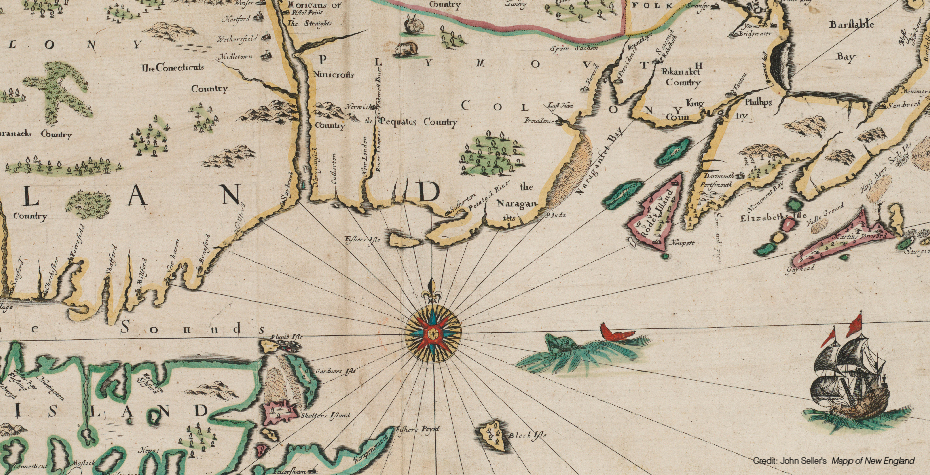The Mail Must Go Through: Professor’s Book Explores Arrangement Between Early Colonists and Native Americans

Sharing news in Colonial America was a difficult task; there was no postal service, no newspapers, and certainly none of the instantaneous messaging options we have today.
Katherine Grandjean, assistant professor of history, is an historian of early American and Native American history, American frontiers, English colonialism, and cultural encounters. Her new book, American Passage: The Communications Frontier in Early New England (Harvard University Press, 2015), explores an interesting intersection of these concepts -- the relationship between the colonists and the Native Americans who they recruited to carry precious messages across difficult terrain. Grandjean was recently featured in the Boston Globe’s Ideas section.
In researching the book, Grandjean compiled a database of nearly 3,000 letters from colonists to business partners, loved ones, and officials. According to Grandjean, understanding these relationships is crucial to painting a more accurate picture of colonial New England.
“What surprised me most, as I researched the book, was what a different picture emerged of early New England,” Grandjean said in an email. “New England has been familiar terrain for colonial historians for a very long time. In popular imagination, it's remembered as a place of orderly, insular Puritan villages, with Indians and everyone else pushed to the margins. But the reality was a lot messier than that. It was a fearful place. It was precarious. For many of its early years, it rested on white knuckles. The more you follow the flow of news, the more you start to see holes in the English landscape--and to see all of the struggles involved in settling.”
Colonial letters, she said, were often about war or some other alarming piece of news, but there were lighter correspondences, too. She said some of her favorites are the more personal, family letters. One she highlighted in the conversation with the Globe is reminiscent of present-day repeated messages of urgency sent via frantic text messages; however, unlike today, early American colonists did not have read-receipts.
“One of my favorites is a very poignant exchange from the 1630s,” Grandjean said. “Mary Winthrop Dudley, who was pregnant and lived 30 miles from her family, wrote letters all winter pestering her stepmother to send various household goods. She needed soap. She needed cloth. She needed thread. She needed a child's chair. But her stepmother doesn't seem to have answered any of these dramatic pleas. So she eased her tone a bit and admitted, sheepishly, that she'd been sort of "troublesome" in demanding all of these things.”
Through writing American Passage, Grandjean reached a conclusion that brings light to a previously darkened sector of American history. “Settling New England was not just a matter of taking Native land, or of carving farms out of woods. It also meant mastering communication. It meant being able to travel the landscape, to build roads and to hire post riders. Colonists had to be able to send news, reliably, and it was a tremendous struggle. But it was a critical part of English expansion.”
Read the full interview Colonists sent letters by native American messengers, says new book in the Boston Globe Ideas section.
-Katelyn Campbell '17 contributed to this story.
